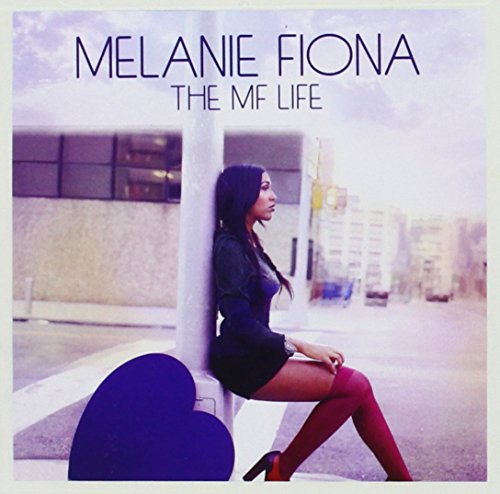
Melanie Fiona
The MF Life
Release Date: Mar 20, 2012
Genre(s): R&B, Adult Contemporary R&B, Contemporary R&B
Record label: Universal Republic
Music Critic Score
How the Music Critic Score works
Buy The MF Life from Amazon
Album Review: The MF Life by Melanie Fiona
Great, Based on 4 Critics
Based on rating 5/5
On her hit second album, this Canadian-Guyanese singer shows she's a multidimensional diva. Melanie Fiona belts her way through "Wrong Side of a Love Song," where her supple voice is framed by organ and string flourishes; "Watch Me Work" is hard funk with trashy-riffing guitar; and "Can't Say I Never Loved You" spools a lost-love lament around a gentle ukulele strum. (Even when she's sad, she's innovating.) Big-name guests like Nas ("Running") and John Legend ("L.O.V.E.") accentuate Fiona's strengths instead of overshadowing them, a testament to her supreme confidence.
Based on rating 8/10
When the forlorn ballad "4 AM" started to gain airplay, in September 2011, it sounded like an answer record to any one of several songs in rotation. Here was the flip side to the boys' unapologetic pillage-and-plunder tales: the voice of a vulnerable, livid woman backed by pinging/pulsing percussion, including a brilliantly anachronistic drum'n'bass tease, with swells of synthesizers, strings, and electric guitar. The insidious effect of "4 AM" translated to a slow, steady rise; by the time The MF Life was released, in March 2012, it had finally slipped into the Top Ten of Billboard's R&B/Hip-Hop chart.
Based on rating 2/5
On her debut, The Bridge, Toronto-born singer Melanie Fiona sought to nudge the American R&B charts away from Auto-Tuned simplicity toward unpredictable melody and unbridled emotion. Her follow-up, however, is closer to a traditional multi-producer record featuring a checklist of styles - hip-hop, R&B, retro soul, rock and radio pop - that showcase her technical precision as a singer but reluctance to colour outside the lines. Fiona's gleaming clarity works on sobering ballads like the minimal 4am and the maximal Wrong Side Of A Love Song, but less so on the Drake-penned I Been That Girl, a dark, sinewy song with more nuanced, self-reflective lyrics than those on the rest of the album.
Opinion: Very Good
WIZ KHALIFA “Taylor Allderdice” (taylorallderdicemixtape.com) Apologies are not ordinarily in order for rappers who have navigated the path from reliable mixtape purveyor to steady pop presence, but last month apologize Wiz Khalifa did, in an open letter to fans. Recalling his influential, woozy 2010 mixtape “Kush & Orange Juice,” he described knowing that he “had created a new genre” that would change music. (For argument’s sake, allow him his hyperbole.) That mixtape gave him momentum, and a major-label deal, which led to his 2011 album, “Rolling Papers” (Rostrum/Atlantic), which was shinier and less narcotic than his older work, but also successful; it was certified gold and spawned three platinum singles.
'The MF Life'
is available now

